Australia’s GDP contracts 0.3 per cent in first quarter of 2020
The Australian economy went backwards in the three months to the end of March, putting the country into recession for the first time in 29 years.
NSW
Don't miss out on the headlines from NSW. Followed categories will be added to My News.
- Kickstart NSW: How the economy will be fired up
- ‘Right done’: AMP caves over ‘missing’ 38-year deposit
Australia’s world-record run of economic expansion has come to an end, with the country in a recession for the first time since 1991.
Gross domestic product shrank by 0.3 per cent in the first quarter of the year, national accounts data released by the Australian Bureau of Statistics yesterday showed.
When Treasurer Josh Frydenberg was asked if Australia was now in a recession, he said: “The answer to that is yes, and that is on the basis of the advice that I have from the Treasury Department about where the June quarter is expected to be.”
A recession is defined as two consecutive quarters of contraction.
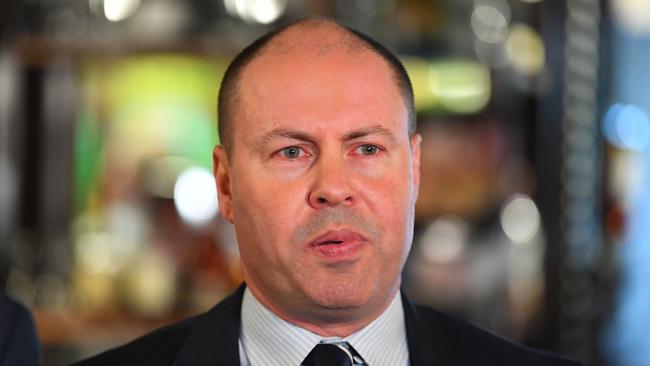
MORE NEWS
Pandemic panic spurs interest in Australian Made
Power companies warned to slash prices... or else
How huge gas project would bring regional town back to life
“The June quarter, the economic impact will be severe. Far more severe,” Mr Frydenberg said, prompting some experts to tip big tax cuts to stimulate spending.
While there were even tougher times to come, Mr Frydenberg said that the nation had avoided economic “Armageddon” unlike some countries.
China’s output shrank nearly 10 per cent in the three months to the end of March, he said, and France went backwards by 5 per cent over the same period.
CommSec chief economist Craig James said the world had “noted the good news story Down Under,” driving the Australian dollar to nearly US70 cents yesterday. It touched US55c in mid-March.
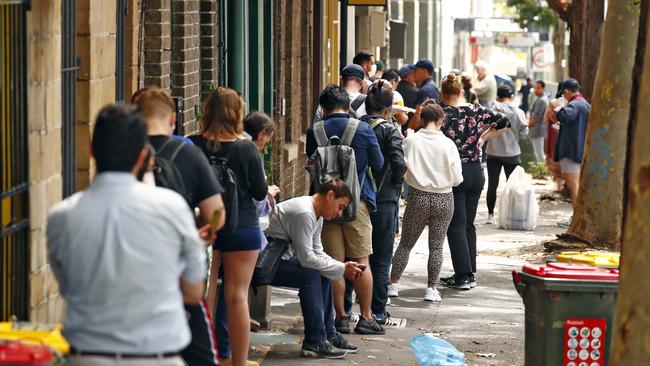
ABS chief economist Bruce Hockman told The Daily Telegraph the national accounts showed the resilience of the economy. “Because it was a pretty tough quarter,” Mr Hockman said. “It began with fire and ended with pestilence.”
NSW was the weakest state. Westpac senior economist Elliot Clarke said this was due to “the severity of the summer’s fires within its borders and subsequently the state’s high case count for COVID-19 relative” to others.
State demand fell 1.5 per cent in the three-month period; Victoria’s declined just 0.1 per cent.
The biggest disappointment in the national accounts was the size of the drop in consumer spending, down 1.1 per cent for the quarter — the worst result in 34 years — with services such as transport and hotels haemorrhaging 12 per cent and 9 per cent respectively.
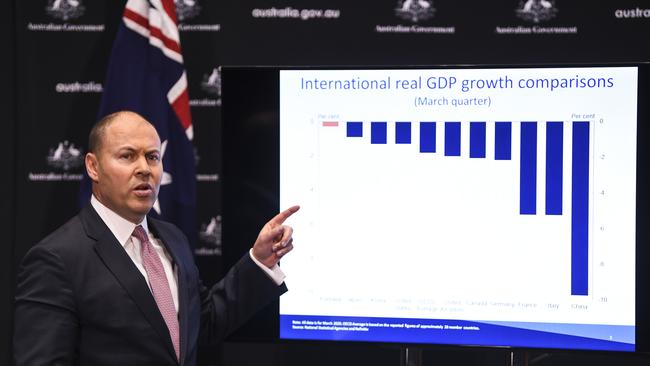
Reflecting some of the panic-buying that occurred early in the pandemic, food sales were up nearly 6 per cent and alcohol spending rose 3.5 per cent.
St George chief economist Besa Deda said the good news was “the duration of this recession might be quite short and limited to just two quarters”.
CommSec’s Mr James said the RBA and governments had applied stimulus “liberally, so there is likely to be a healthy lift in activity in the September and December quarters” provided the COVID-19 curve stayed flat.
CommSec and St George expect an 8.5 per cent contraction in the June quarter. Westpac and NAB anticipate slightly smaller declines.
What there is no dispute about is that it will be the worst result on record.
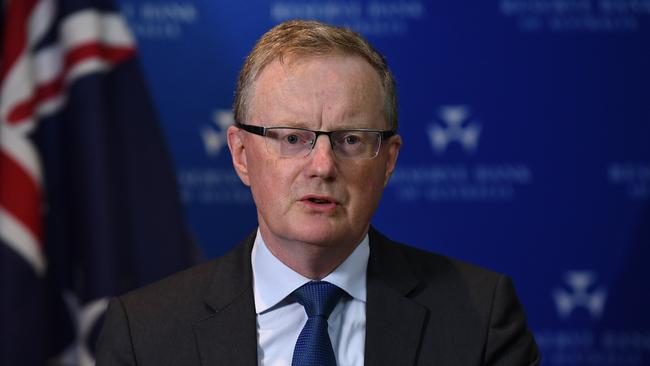
Hospitality marketing specialist Jesse Freeman remains positive his business, Food Coma Media, will survive a recession.
The 25-year-old sole trader said cashflow suddenly dried up when the pandemic hit in March, with profits slashed 50 per cent from the previous month.
But Mr Freeman said he was taking it one day at a time, confident his services will still be required — even through a severe economic slump.
“I’m optimistic that what I offer will always be needed by restaurants and pubs,” Mr Freeman said.
“I have a close relationship with a lot of people I work with.”

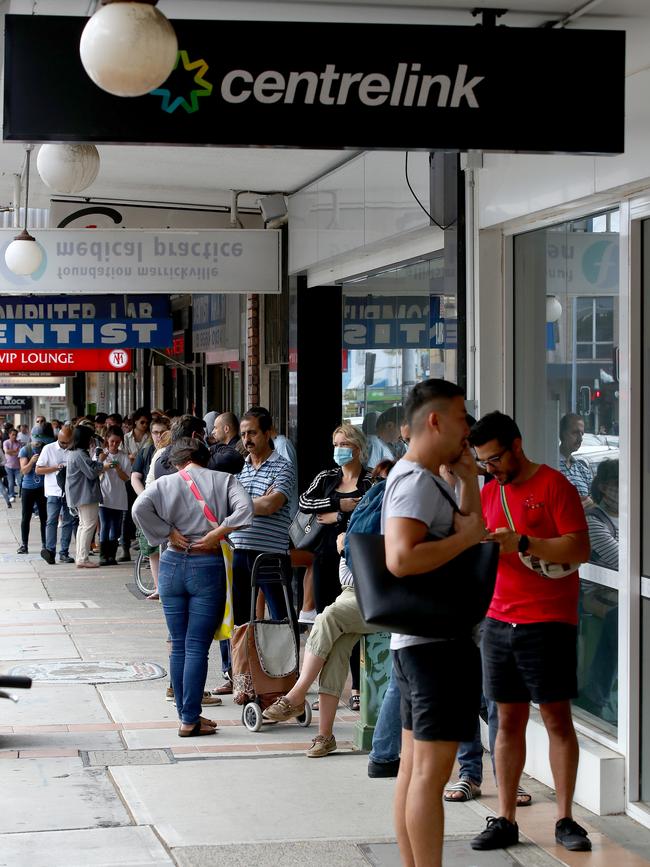
Nomura senior economist Andrew Ticehurst said he expected an “incomplete recovery”, meaning the Reserve Bank of Australia would not raise interest rates until 2022 at the earliest.
NAB chief economist Alan Oster said the federal government “would have to get more income into the household sector” which could occur via “very big tax cuts”.
Labor’s Treasury spokesman Jim Chalmers was yesterday critical of the government’s economic management before and during the virus crisis.
Dr Chalmers called for temporary financial assistance to be kept in place beyond September.
“Having introduced the support for the economy too narrowly and too slowly, Australians can’t afford for the government to withdraw that support too quickly or too bluntly,” he said.
The ABS’s Mr Hockman said the two-month lag between the end of the quarter and the release of the national accounts was due to it having to wait until the 16,000 businesses surveyed had done their books for the quarter.
Plus it had to give four weeks to reply to ensure there was an adequate response rate.
It took a further fortnight to do quality assurance, analysis and write up the results.
Originally published as Australia’s GDP contracts 0.3 per cent in first quarter of 2020



